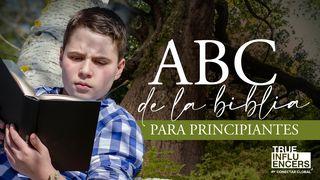Delve Into Covenant History Muestra

DAY 7 – DEUTERONOMY
The book of Deuteronomy is the last great speech that Moses gives just before his death. He speaks to the people of Israel as they prepare to enter the land of Canaan. He addresses the generation that grew up in the wilderness and urges them to join in the “covenant” or agreement that God made with their parents when he brought them out of slavery in Egypt. Moses explains to this generation that they can be just as much a part of the covenant as those who were at Mount Sinai. He insists, “It was not with our ancestors that the Lord made this covenant, but with us, with all of us who are alive here today.”
Moses presents the privileges and responsibilities of the covenant in a form his hearers recognize. It was used by rulers of the time to make treaties with other rulers who had become their servants or vassals. These treaties had a standard form:
A treaty first listed the name and titles of the great ruler and described what he had done for the king who was becoming his servant.
The obligations of this servant were then spelled out: first, to give exclusive allegiance to the great ruler; then to fulfill specific duties such as paying tribute, allowing the passage of armies, and so forth.
The treaty included blessings for keeping it and curses for breaking it. It typically included a clause that specified what each ruler was to do with his own copy of the agreement. Deuteronomy follows this pattern very closely.
It begins with a preamble that names Moses as the representative of the God of Israel. Moses then describes what God has done for the current generation of Israelites then living: God has preserved and guided them in the wilderness and given them preliminary victories over the people in the lands where they will settle.
Moses then describes the Israelites’ obligations as God’s servants. He explains that if they follow God’s laws faithfully, the nations around them will recognize how close God is to them and what wise decrees he’s given. He insists on their duty to give God their exclusive allegiance: “And now, Israel, what does the Lord your God ask of you but to fear the Lord your God, to walk in obedience to him, to love him, to serve the Lord your God with all your heart and with all your soul, and to observe the Lord’s commands and decrees that I am giving you today for your own good?”
Many specific commandments follow, which are designed to preserve justice within their society and ensure purity in their worship of God.
Moses then tells the people how to make a copy of the covenant for themselves. On a high mountain in the midst of the land, they’re to set up large stones, cover them with plaster, and write the words of the law on them. They’re to pronounce curses there on those who break the law.
Moses himself describes the blessings the nation will receive if it follows God’s ways and the curses it will experience instead if it doesn’t. Since treaties of this kind were ratified by sacred oaths, Moses then summons the people to join in an oath, explaining that it will be binding not just on them but on their descendants: “I am making this covenant, with its oath, not only with you who are standing here with us today in the presence of the Lord our God but also with those who are not here today.”
The treaty, with its restatement of the law that God gave at Mount Sinai and in the wilderness, becomes a constitution for the nation.
Because Moses is about to die, he names Joshua as his successor to lead the nation and represent God in the covenant relationship. He teaches the people a song to memorize as a warning against disobedience, and he gives a parting blessing to each of the twelve tribes. Finally, he climbs a mountain, looks out at the Promised Land, and dies. He has brought one generation of Israelites out of slavery and their descendants into a covenant with the God who has chosen them to fulfill a special purpose in his plans for the whole world.
PRAYER: Thank You, Lord for Your special purposes for this world and for sending Your only Son to set things right again.
Escritura
Acerca de este Plan

The Old Testament is filled with unfamiliar places and names and tells a story that is impossible to understand. Actually, that’s not true. Yes, there are plenty of unfamiliar names, but the it all makes sense – once you know the context and the background. This reading plan gives you a brief overview that will help you read and appreciate God’s story
More
Planes relacionados
Marcas De Un Discípulo

¡Levántate! 7 Claves Para Levantarte Y Seguir.

La Gracia. 7 Claves Para Vivir en Plenitud.

Que El Mundo Crea

1 Tesalonicenses: Modelos a imitar

ABC De La Oración ... Para Principiantes.

Testigos Del Milagro: La Primera Navidad

Confiando en Los Propósitos De Dios
